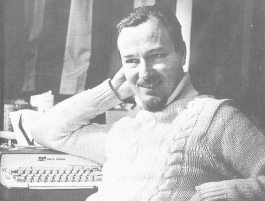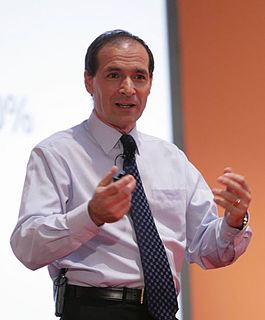A Quote by John Brunner
For all the claims one hears about the liberating impact of the data-net, the truth is that it's wished on most of us a brand-new reason for paranoia.
Related Quotes
We get more data about people than any other data company gets about people, about anything - and it's not even close. We're looking at what you know, what you don't know, how you learn best. The big difference between us and other big data companies is that we're not ever marketing your data to a third party for any reason.
The step between prudence and paranoia is short and steep. Prudence wears a seat belt. Paranoia avoids cars. Prudence washes with soap. Paranoia avoids human contact. Prudence saves for old age. Paranoia hoards even trash. Prudence prepares and plans, paranoia panics. Prudence calculates the risk and takes the plunge. Paranoia never enters the water.
And every historic effort to forge a democratic project has been undermined by two fundamental realities: poverty and paranoia. The persistence of poverty generates levels of despair that deepen social conflict the escalation of paranoia produces levels of distrust that reinforce cultural division. Rae is the most explosive issue in American life precisely because it forces us to confront the tragic facts of poverty and paranoia despair, and distrust. In short, a candid examination of race matters takes us to the core of the crisis of American democracy (p. 107).
There is an appearance of humility in the protestation that the truth is much greater than any one of us can grasp, but if this is used to invalidate all claims to discern the truth it is in fact an arrogant claim to a kind of knowledge which is superior to [all others]...We have to ask: 'What is the [absolute] vantage ground from which you claim to be able to relativize all the absolute claims these different scriptures make?
You have to imagine a world in which there's this abundance of data, with all of these connected devices generating tons and tons of data. And you're able to reason over the data with new computer science and make your product and service better. What does your business look like then? That's the question every CEO should be asking.



































